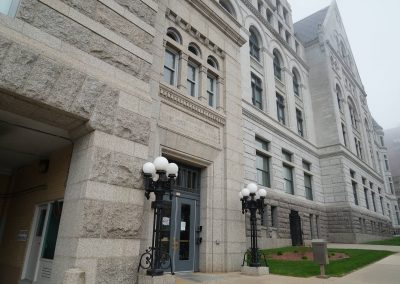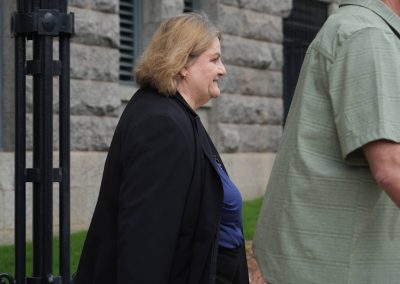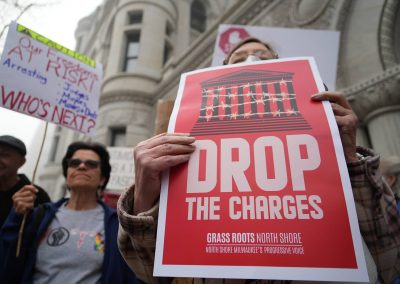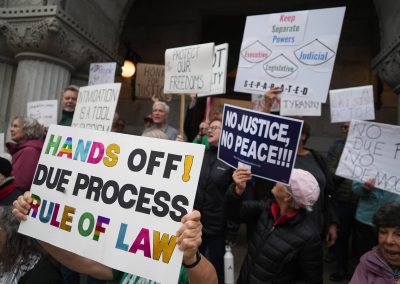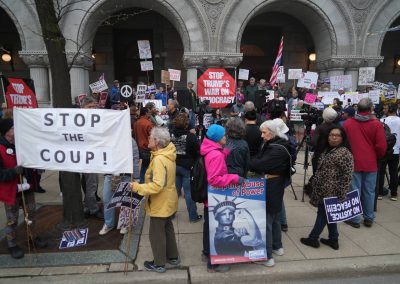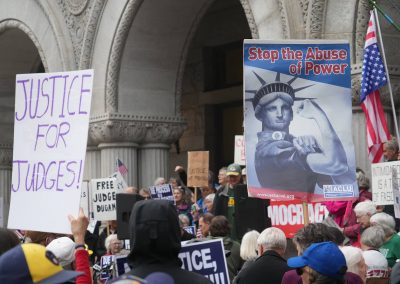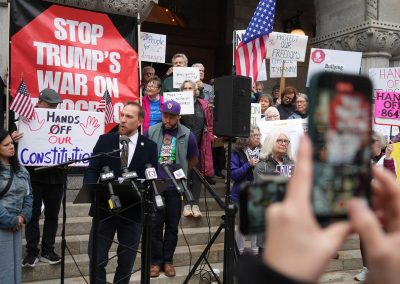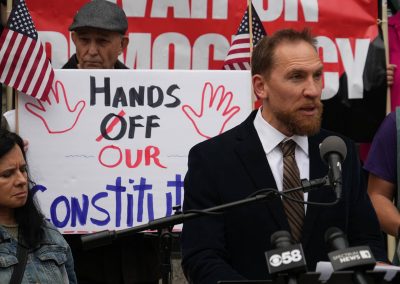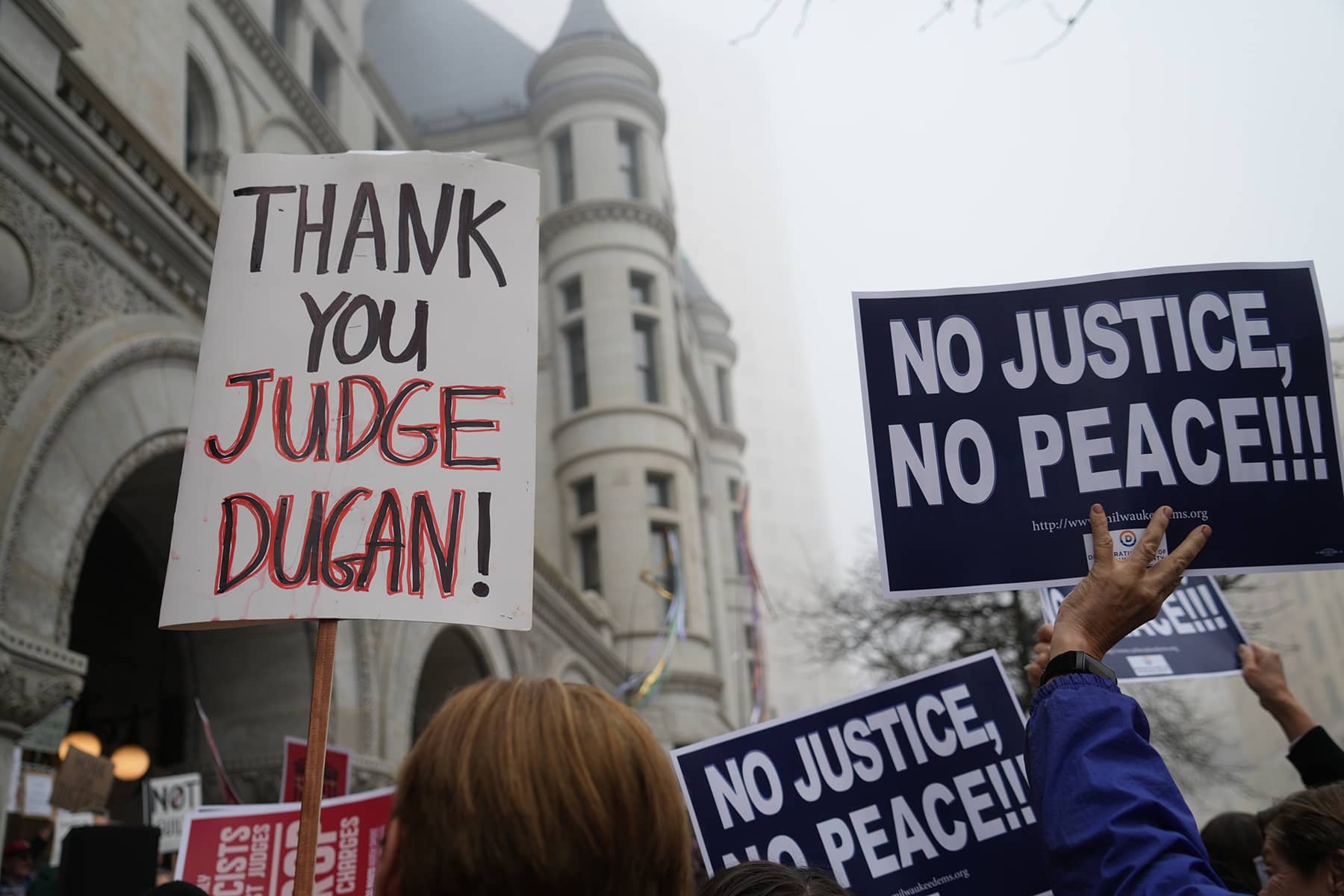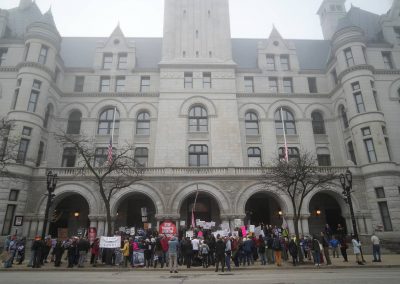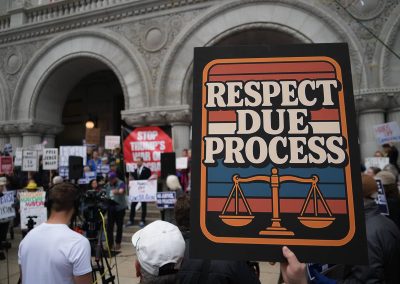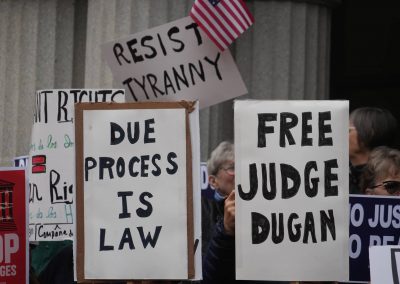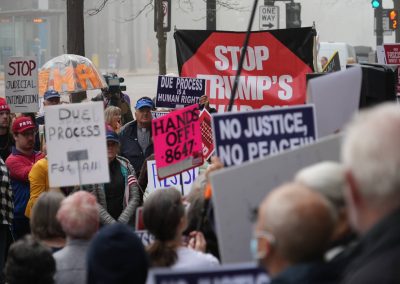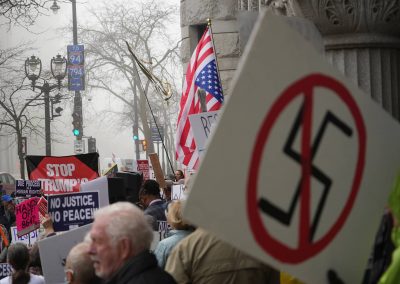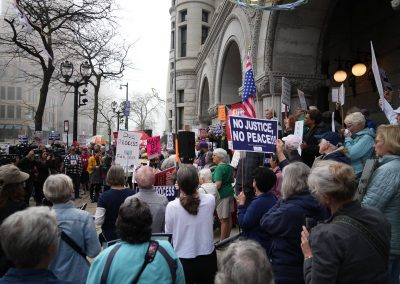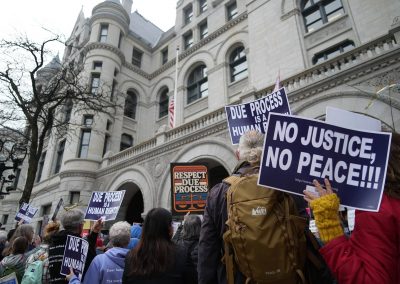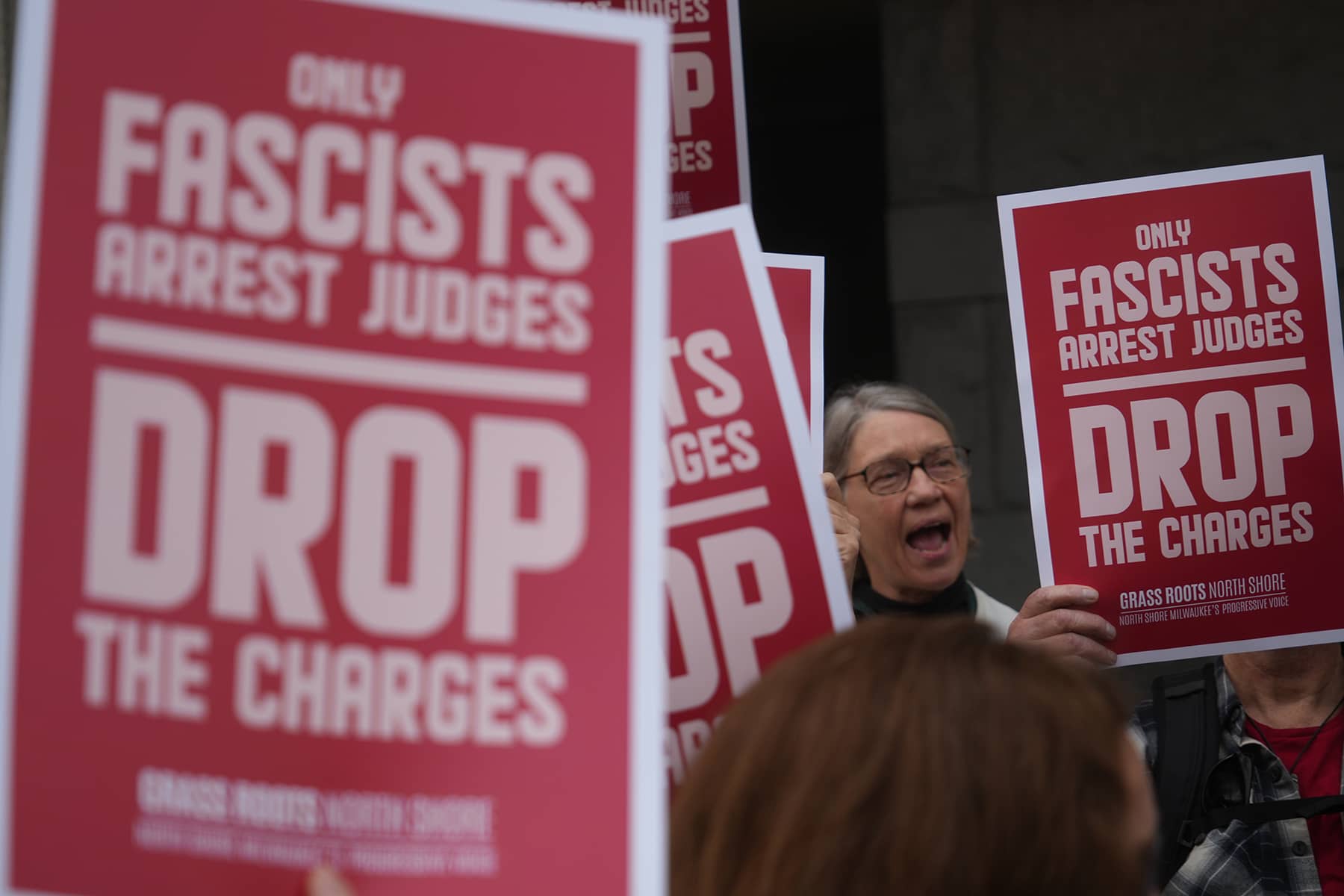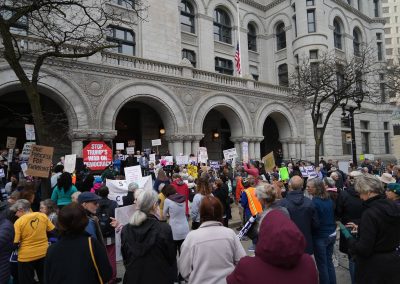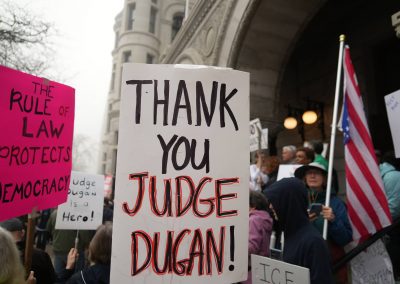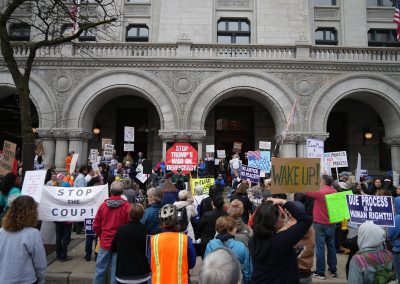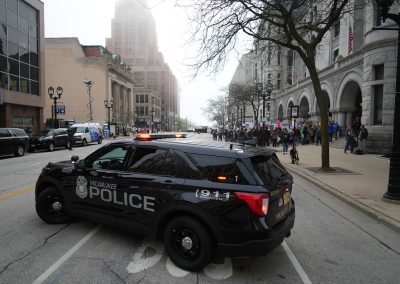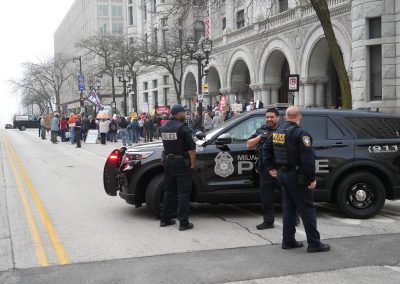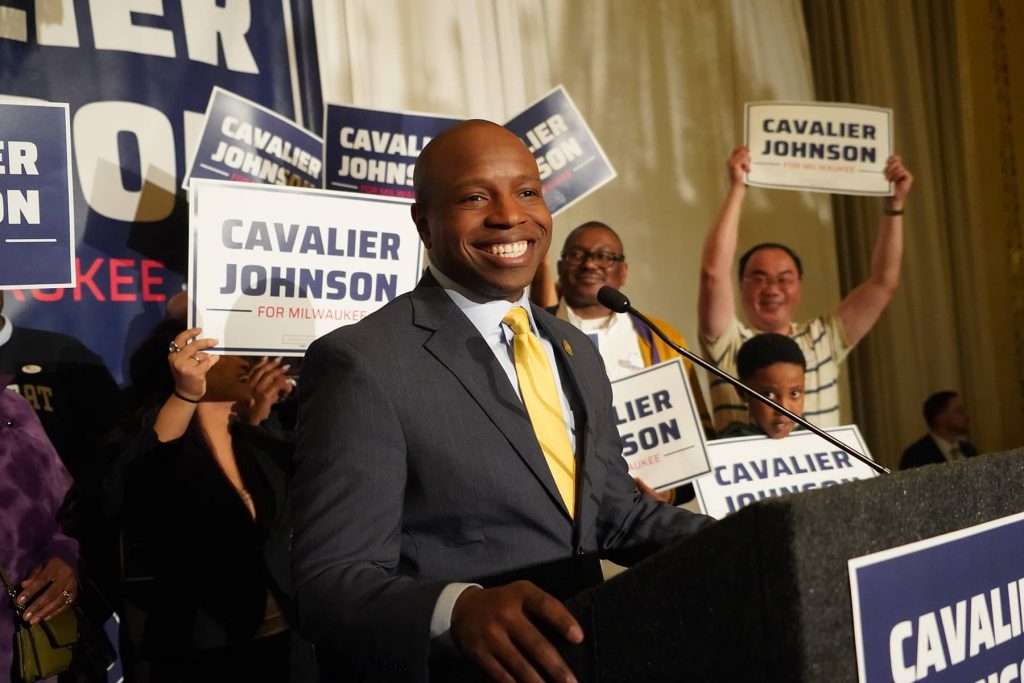
Judge Hannah Dugan, a respected Milwaukee County Circuit Court judge, is at the center of a federal prosecution that legal experts and civil rights advocates are calling an alarming escalation in the Trump administration’s campaign against judicial independence.
Judge Dugan pleaded not guilty at her May 15 arraignment at the Federal Courthouse in downtown Milwaukee, during which a federal magistrate set her trial date for July 21.
The Federal charges against her, alleging that she helped a defendant avoid arrest by U.S. Immigration and Customs Enforcement, are unprecedented and strike at the core of constitutional protections and the balance of federalism.
At issue is an April 18 incident in which Immigration and Customs Enforcement agents, lacking a judicial warrant, attempted to arrest a man, Eduardo Flores-Ruiz, inside Judge Dugan’s courtroom.
The agents held only an “administrative warrant,” an internal ICE document that does not carry the force of law and does not compel cooperation from judges or local law enforcement.
According to Federal prosecutors, Judge Dugan allegedly directed Flores-Ruiz and his lawyer through a back entrance to leave the courthouse without confronting the agents. For that, she now faces two criminal charges, obstruction and concealing an individual to prevent arrest. The offenses, if convicted, could carry a sentence of up to six years in prison.
But to Judge Dugan’s attorneys, constitutional scholars, and a growing number of citizen groups nationwide, the charges are not about enforcing the law. They are about punishing a judge who acted within her legal authority to defy Trump and is now being targeted to make an example.
“There is no legal basis for this prosecution,” stated Judge Dugan’s motion to dismiss, filed on May 14 by her defense team. “The government cannot prosecute Judge Dugan because she is entitled to judicial immunity for her official acts.”
Citing the U.S. Supreme Court’s 2024 ruling in “Trump v. United States,” the motion underscores that judges, like presidents, are protected from prosecution when performing acts that fall within their official duties.
What Judge Dugan did that day, her attorneys argue, was no more than directing movement in and around her courtroom, a fundamental part of any judge’s responsibilities.
“Immunity is not a defense to be determined later by a jury,” the motion asserted, “it is an absolute bar to the prosecution at the outset.”
That view is not legally novel. In fact, the federal case against Judge Dugan bears a striking resemblance to a similar case brought during Trump’s first term against a Massachusetts judge accused of aiding a defendant’s exit through a courthouse rear door. That case, too, lacked foundation and was ultimately dismissed.
What distinguishes this case from routine legal proceedings is its blatantly political overtones. By targeting a sitting judge who acted within her jurisdiction and who dared not capitulate to federal overreach, the Trump administration is sending a clear message. Any opposition to its immigration enforcement agenda will be met with retribution, even if that means invading the sovereignty of state courts.
Judge Dugan’s defense team includes legal heavyweights with deep bipartisan credentials. Steven Biskupic, a former U.S. attorney in Milwaukee under President George W. Bush, and Paul Clement, a former U.S. solicitor general who has argued over 100 cases before the U.S. Supreme Court. Both attorneys are known for their rigorous legal ethics and formidable courtroom presence.
The May 14 motion to dismiss the case against Judge Dugan articulated the constitutional danger.
“This is no ordinary criminal case, and Dugan is no ordinary criminal defendant … The government’s prosecution of Judge Dugan is virtually unprecedented and entirely unconstitutional – it violates the Tenth Amendment and fundamental principles of federalism and comity reflected in that amendment and in the very structure of the United States Constitution.”
The blowback over the April arrest has been swift and fierce. Outside the courthouse on the day of her arraignment, demonstrators gathered in the dozens with signs declaring, “Only Fascists Arrest Judges” and “Department of Justice Over-Reach.” The chants of “Hands off our freedom” reflected the widespread fear that Americans feel since Trump regained the White House in January.
Former Federal prosecutor John Vaudreuil, though not involved in the case, noted the aggressive tone of the prosecution.
John Vaudreuil, a former federal prosecutor in Wisconsin who isn’t involved in Dugan’s or Flores-Ruiz’s cases, said the Trump administration seems to want to make an example out of Dugan. U.S. Attorney General Pam Bondi or Deputy Attorney General Todd Blanche, rather than the U.S. attorney in Milwaukee, are likely making the decisions on how to proceed, making it less likely prosecutors will reduce the charges against Dugan in a deal.
And that is precisely the issue. Judge Dugan has become a symbol of judicial resistance to executive overreach from the Trump regime. Her courtroom became a flashpoint not because she violated any law, but because she refused to treat a non-legal administrative ICE warrant as a license to suspend due process.
That refusal, grounded in law, now serves as the pretext for a full-scale political prosecution. Legal experts agree that at the center of this prosecution is not an act of criminality, but a refusal to subordinate state court authority to federal political will. The expectation that Judge Dugan should have obeyed an administrative warrant, something not issued by a court of law and carrying no legal weight, is a distortion of legal procedure.
As her motion to dismiss stated, administrative warrants do not allow for forced entry. They do not authorize detention without judicial review. They exist only within a narrow bureaucratic framework. The Federal prosecution’s use of an administrative document as its foundational evidence underscores the political motives behind the case.
The Wisconsin Supreme Court suspended Judge Dugan from the bench in April, appointing a reserve judge in her place. The court cited standard judicial procedures for temporary suspensions in pending criminal cases, a step intended to preserve the functioning of the court system while legal proceedings are underway.
Despite the political and legal headwinds, Judge Dugan’s defense team is preparing for a jury trial. Her attorneys bring unmatched experience and bipartisan credentials. Their willingness to confront the prosecution head-on signals confidence in their client’s innocence, and the public’s ability to distinguish between law and political intimidation.
Vaudreuil expects a jury trial will offer an advantage, because Judge Dugan’s defense team knows that “people feel very strongly about the way the president and administration is conducting immigration policy.”
The path forward will test more than legal precedent, it will also test public resolve. Demonstrators outside the courthouse on May 15 have made clear where they stand. They are not defending just one judge, they are defending the right of judges everywhere to uphold constitutional limits without facing political retribution.
In this case, Judge Dugan is defending herself and the independence of the judiciary. What is at stake is whether courts can operate free from presidential interference, especially when judges are carrying out their official duties.
If that protection fails here, judges across the United States will be at risk of prosecution by the Trump regime for doing their job.
© Photo
Lee Matz

